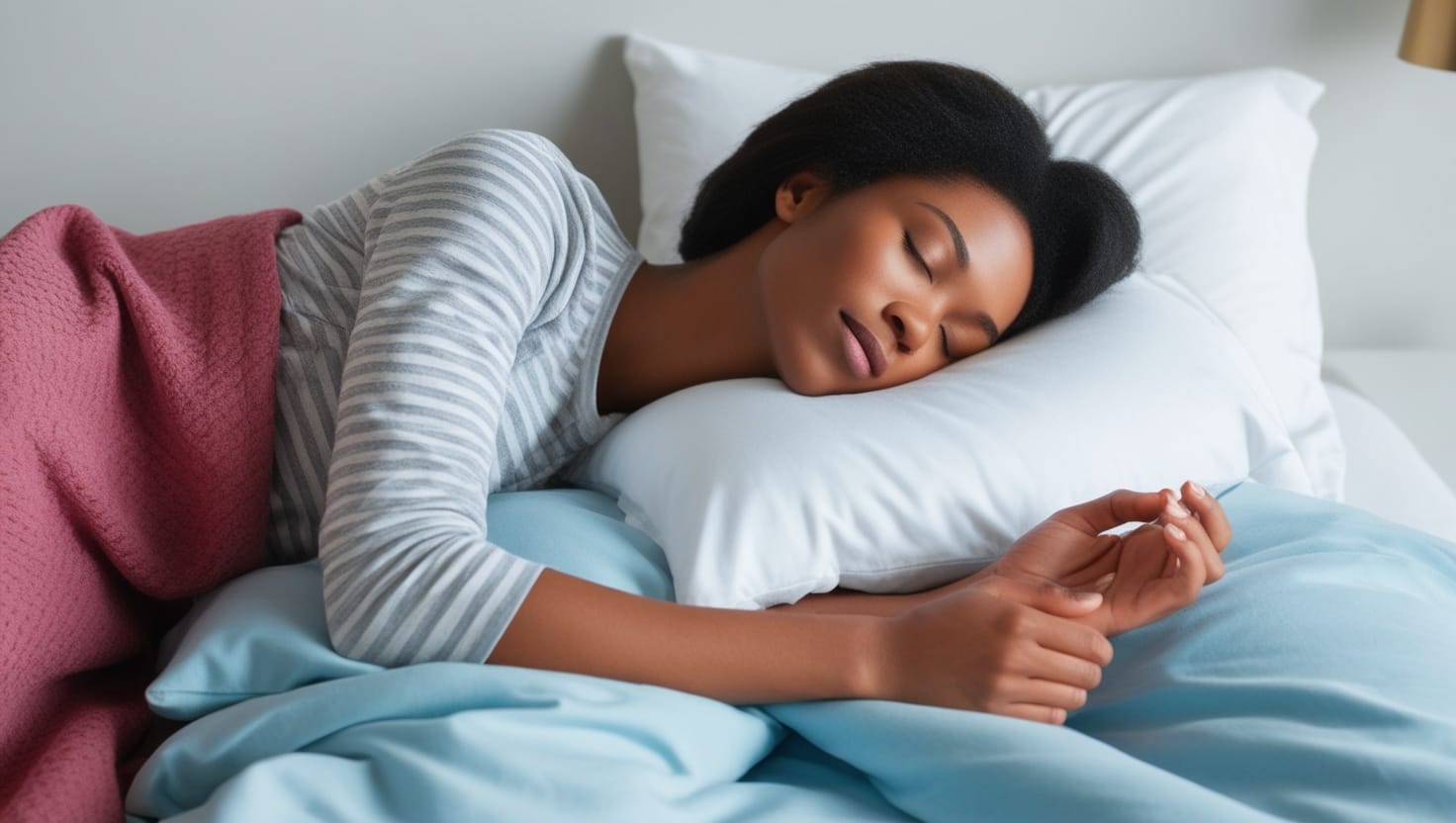Introduction
It’s simple to spend hours on electronics before going to bed in today’s more digital world, whether you’re using them for laptop work, social media browsing, or TV viewing. But this continuous screen time, particularly at night, can negatively impact your ability to get a decent night’s sleep. You should avoid using phones, tablets, and other gadgets that emit blue light as it can disrupt your sleep pattern. This post will discuss the effects of blue light on sleep, the science underlying these effects, and doable strategies to reduce blue light’s interference with your sleep.
The Science of Blue Light and Sleep
Blue light is a high-energy, short-wavelength light that is released by nearly all digital screens and some artificial lighting options, such as LED lights. Blue light can improve mood, reaction times, and attentiveness during the day, but at night it can have the reverse impact.
This is the reason why: Melatonin, a hormone that is essential for controlling the circadian rhythm—the body’s cycle of sleep and wakefulness—is suppressed by blue light. Melatonin levels often increase in the evening to tell your body it’s time to go to sleep. On the other hand, blue light exposure inhibits the generation of melatonin, which makes it more difficult to fall asleep, stay asleep, and attain restorative deep sleep.
The Impact of Blue Light on Sleep Quality
Blue light and screen usage too much can interfere with sleep in a number of ways.
Delayed Sleep Onset
- Exposure to blue light causes your brain to believe that it is still daytime, which delays the generation of melatonin and makes it more difficult for you to go asleep. Sleep onset insomnia results from this, making it more difficult to fall asleep.
Reduced Sleep Duration
- Blue light can not only make it more difficult to fall asleep, but it can also shorten your sleep duration. Your sleep duration will shorten the later you stay awake as a result of screen use, which can cause sleep deprivation.
Disruption of Deep Sleep
- Blue light can not only make it more difficult to fall asleep, but it can also shorten your sleep duration. Your sleep duration will shorten the later you stay awake as a result of screen use, which can cause sleep deprivation.
Fragmented Sleep
- Using screens right before bed can also result in more fragmented sleep, which makes it harder to get a full night’s sleep by waking up several times. This is particularly valid if you’re checking your tablet or phone at odd hours of the night.
The Impact of Blue Light on Sleep Quality
Blue light and screen usage too much can interfere with sleep in a number of ways.
Delayed Sleep Onset
- Exposure to blue light causes your brain to believe that it is still daytime, which delays the generation of melatonin and makes it more difficult for you to go asleep. Sleep onset insomnia results from this, making it more difficult to fall asleep.
Reduced Sleep Duration
- Blue light can not only make it more difficult to fall asleep, but it can also shorten your sleep duration. Your sleep duration will shorten the later you stay awake as a result of screen use, which can cause sleep deprivation.
Disruption of Deep Sleep
- Deep sleep is essential for physical restoration, memory consolidation, and overall health. However, blue light exposure can interfere with your ability to reach and maintain deep sleep stages. This can leave you feeling fatigued and groggy the next day, even if you slept for a full 7-8 hours.
Fragmented Sleep
- Using screens right before bed can also result in more fragmented sleep, which makes it harder to get a full night’s sleep by waking up several times. This is particularly valid if you’re checking your tablet or phone at odd hours of the night.
Table: Key Effects of Blue Light on Sleep
| Sleep Disruption | Description |
| Delayed Sleep Onset | Makes it harder to fall asleep by delaying melatonin production. |
| Reduced Sleep Duration | reduces total sleep duration, which exacerbates sleep deficit. |
| Impaired Deep Sleep | hinders the attainment of deep, healing sleep stages. |
| Fragmented Sleep | causes frequent nighttime awakenings, which lowers the quality of sleep. |
Practical Tips to Minimize Blue Light Exposure
Lowering your exposure to blue light before bed can greatly enhance the quality of your sleep. You may unplug and get a better night’s sleep by following these tips:
Limit Screen Time Before Bed
- Try to cut back on screen time at least one or two hours before going to bed. This helps you fall asleep more quickly by giving your brain a chance to relax and producing more melatonin.
Use Blue Light Filters
- In the event that you must use electronics during the night, think about downloading apps that filter blue light or making use of built-in features like “Night Mode” or “Blue Light Filter.” These functions give your gadget a softer, warmer glow by lowering the quantity of blue light it emits.
Try using blue light-blocking eyewear.
- Investing in blue light-blocking eyewear can help shield your eyes from hazardous light. Even when using a screen, wearing these glasses in the evening helps reduce your exposure to blue light.
Optimize Your Bedroom Lighting
- In your bedroom, choose for warm-colored lightbulbs since they give off less blue light than LEDs. You can also tell your body it’s time to go to sleep by dimming the lights in your bedroom one hour before bed.
Create a Relaxing Pre-Sleep Routine
- Instead of relying on screens to unwind, engage in other relaxing activities, such as reading a physical book, practicing meditation, or listening to calming music. These activities help you shift your focus away from electronics and allow your brain to prepare for sleep.
Conclusion
Take up some soothing hobbies, like reading a book in person, meditating, or listening to soothing music, in instead of using screens to decompress. By engaging in these activities, you may take your mind off of devices and help it get ready for sleep.











